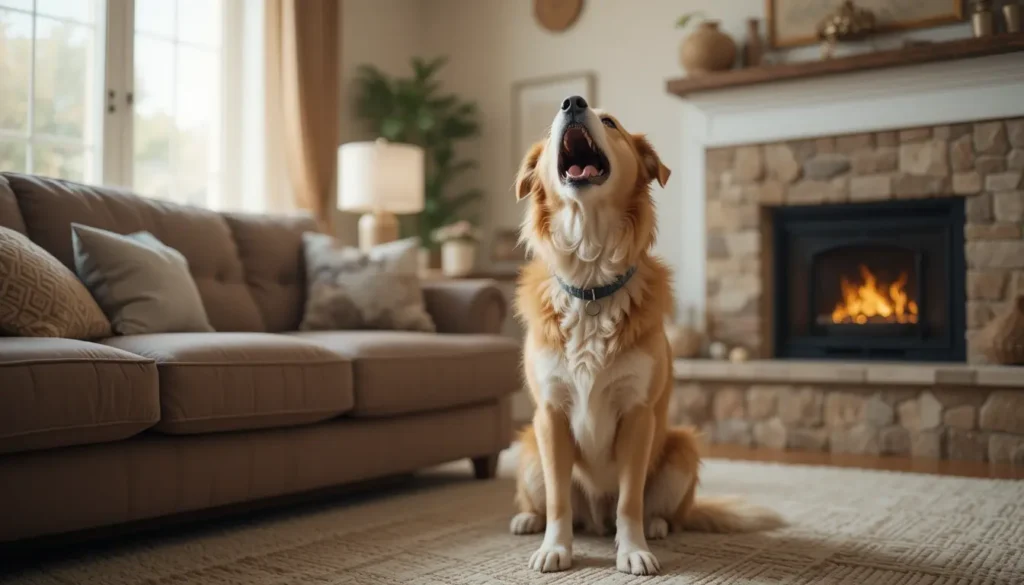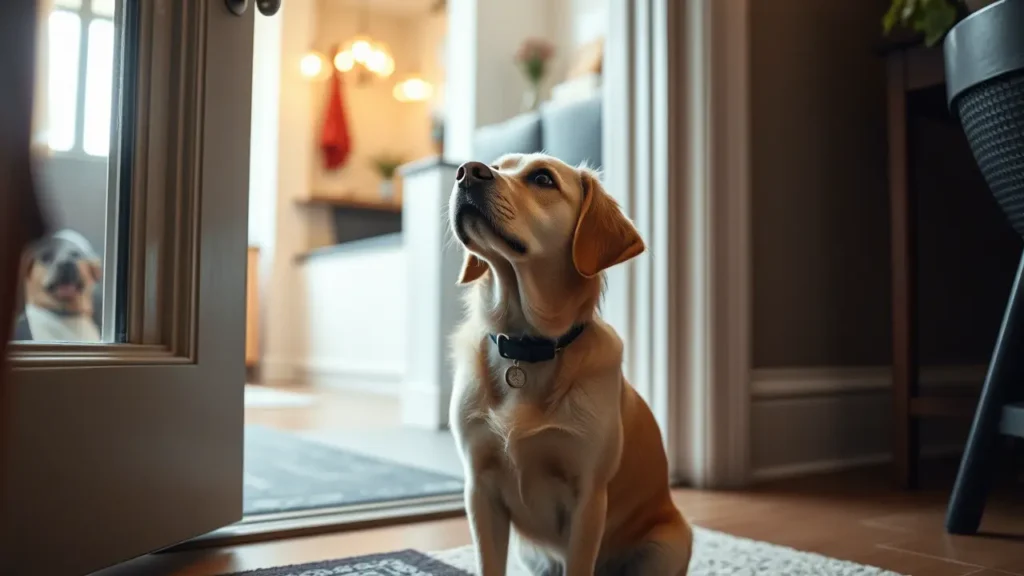Socialization is one of the most important aspects of raising a well-rounded dog. It involves exposing your furry friend to a variety of people, animals, environments, and experiences in a positive and controlled manner. It plays a critical role in shaping a dog’s behavior, temperament, and overall quality of life. In this article, we’ll explore the numerous benefits of socializing your dog and why it’s essential for both you and your canine companion.
Prevents Behavioral Issues
Socializing your dog prevents behavioral problems. Without proper exposure to a variety of elements in the society, they may develop fear-based behaviors or become overly reactive. A dog unfamiliar with other animals might display aggression toward them.
Behavioral issues often stem from a lack of confidence. This happens because they don’t know how to respond appropriately in new scenarios. For example, if a dog has not been exposed to children, they might perceive a child’s high-pitched laughter as threatening. This leads to fearful reactions.
That’s why introducing your dog to different environments is important. Socialization helps them build resilience and adaptability. This process teaches them different experiences. This reduces the likelihood of problematic behaviors. A well-socialized dog learns to remain calm and composed.
Addressing severe behavioral problems requires professional intervention. So let your dog socialize. It saves you time, money, and stress in the long run.
Builds Confidence
Socialization plays a crucial role in building your dog’s confidence. It teaches them how to navigate the world around them. Confidence allows them to approach new experiences with curiosity rather than fear. Without sufficient exposure to diverse environments and interactions, dogs feel overwhelmed or threatened by even minor changes in their surroundings.
For example, imagine taking your dog to a busy park for the first time. If they’ve never encountered large groups of people, bicycles, skateboards, or other dogs, they might freeze up, try to hide, or act defensively.
On the other hand, a well-socialized dog will likely explore the environment with interest, greet others politely, and remain relaxed despite the hustle and bustle. This difference in behavior stems directly from the level of confidence developed through repeated positive exposure to similar scenarios.
Exposure to various stimuli also helps desensitize dogs to potentially frightening triggers. For instance, introducing your dog to loud noises can prevent them from developing phobias later on. Over time, this gradual exposure builds their tolerance and reduces the likelihood of fearful responses.
A confident dog is easier to manage. They’re less likely to shy away from new activities. Additionally, confident dogs tend to recover quickly from stressful situations. The emotional resilience makes them better equipped to handle the ups and downs of daily life.
Improves Social Skills
Dogs thrive on interaction with others. Proper socialization teaches your dog proper communication skills. This helps foster positive relationships. Through play, observation, and experience, dogs learn vital social skills such as reading body language, interpreting vocal cues, and respecting boundaries.
Body language is one of the most important aspects of canine communication. During socialization, dogs learn to recognize subtle signals from other animals and people.
For example, a submissive dog might lower its head or roll onto its back to signal non-aggression. A dominant dog might stand tall and stiffen its body. By understanding these cues, your dog can avoid misunderstandings and conflicts. This promotes peaceful coexistence with others.
Socialization helps dogs develop appropriate play behaviors. Puppies learn bite inhibition through playing with littermates. They also discover how to initiate and end play sessions respectfully.
Furthermore, socialization fosters empathy and patience. It allows dogs to adjust their behavior based on the needs of other dogs. These adaptive skills are particularly valuable in multi-pet households.
Finally, good social skills benefit human-dog interactions as well. A dog with good behavior is more likely to be welcomed in public spaces and invited to participate in family activities. This mutual respect and understanding strengthen the bond between you and your dog.
Reduces Fear and Anxiety

Fear and anxiety are common issues among dogs without socialization. These emotions manifest in a variety of ways, including trembling, panting, hiding, growling, and attempting to flee. Such reactions often arise when a dog encounters unfamiliar situation.
Early socialization helps desensitize your dog to these triggers. Through socialization, dogs gradually learn that unfamiliar sights, sounds, and sensations are not inherently harmful. For instance, introducing your puppy to gentle handling, grooming tools, and veterinary equipment can reduce their anxiety during routine care procedures
Desensitization works best when paired with positive reinforcement. Rewarding your dog with treats, praise, and toys during exposure to potentially scary stimuli creates a positive association. It helps them associate the experience with safety and enjoyment rather than fear. Over time, this conditioning reduces their overall sensitivity to triggers.
Reducing fear and anxiety has numerous benefits beyond improving your dog’s immediate comfort. It enhances their ability to cope with change. It also minimizes the risk of developing separation anxiety, compulsive behaviors, and phobias.
Strengthens the Human-Dog Bond
Socialization also plays a significant role in strengthening the bond between you and your furry companion. The process of introducing your dog to new experiences creates countless opportunities for positive reinforcement, trust-building, and shared moments.
When you guide your dog through unfamiliar situations, you become their anchor of safety and reassurance. By staying calm and supportive during these encounters, you demonstrate that you are a reliable source of comfort. Over time, your dog learns to look to you for guidance. This mutual reliance forms the foundation of a lifelong partnership based on trust and understanding.
Positive reinforcement during socialization further cements this bond. Rewarding your dog with treats, praise, and affection helps them associate these experiences with happiness and love. These rewards reinforce the idea that spending time with you is enjoyable. As a result, your dog becomes eager to please and attuned to your cues.
Moreover, socialization provides opportunities for shared adventures and memories. It opens the opportunity for exploring a new hiking trail, attending a puppy class, and playing fetch at the park. These activities create joyful experiences. Every moment spent engaging with your dog strengthens your emotional connection. A well-socialized dog is not just a better-behaved pet; they are also a loyal and loving companion.
Enhances Physical and Mental Health
Socialization offers immense benefits for your dog’s physical and mental well-being. Dogs are naturally energetic. Regular exposure to new environments, activities, and interactions satisfies their innate need for exploration and engagement.
From a physical standpoint, socialization encourages movement and exercise. Playing with other dogs, running in open spaces, and going on walks in diverse settings keep your dog physically fit. Regular exercise helps maintain a healthy weight, strengthens muscles and joints, and improves cardiovascular health. It also reduces the risk of obesity-related conditions.
Mentally, socialization keeps your dog’s mind sharp and engaged. Exploring new places, meeting different people, and interacting with other animals provide constant mental stimulation. These experiences challenge your dog to think critically, adapt to changing circumstances, and solve problems.
For example, figuring out how to navigate a crowded park or communicate effectively with another dog requires focus and decision-making skills. Such mental exercises prevent boredom and stave off cognitive decline.
Additionally, socialization helps curb destructive behaviors caused by pent-up energy. Dogs that lack sufficient physical and mental outlets often resort to chewing furniture, digging holes, and barking excessively to release their excess energy. By keeping your dog stimulated and active through socialization, you minimize the likelihood of these undesirable behaviors.
The combination of physical activity and mental enrichment also has profound effects on your dog’s emotional health. Exercise releases endorphins, which boost mood and reduce stress levels. Similarly, the excitement of discovering new sights, sounds, and smells provides a sense of accomplishment and satisfaction. A happy dog is less prone to anxiety, depression, and aggression.
Makes Training Easier
A well-socialized dog is typically easier to train. They possess the confidence and adaptability needed to excel in various learning scenarios. This adaptability translates directly into improved performance during training sessions.
For example, consider teaching your dog basic obedience commands like “sit,” “stay,” or “come.” In a socialized dog, these lessons are reinforced by their ability to generalize the behavior across different contexts.
A dog accustomed to practicing commands in quiet environments may struggle to follow instructions in a noisy park. However, a well-socialized dog will have already learned to filter out distractions and concentrate on their handler’s cues. It makes the training process smoother and effective.
Socialization also reinforces foundational obedience skills. Leash manners, recall, and impulse control are honed through repeated exposure to real-world situations. For instance, walking politely on a leash becomes second nature when a dog has practiced alongside other dogs, pedestrians, and vehicles.
Similarly, reliable recall is strengthened when a dog consistently responds to their name despite tempting distractions like squirrels and other dogs.
Beyond basic obedience, socialization prepares your dog for advanced training endeavors. Whether you’re working on agility courses, therapy work, or specialized tasks, a socially adept dog is more responsive, cooperative, and confident. Their ability to adapt to new challenges and environments makes them ideal candidates for higher-level training programs.
Furthermore, socialization fosters a positive attitude toward learning. Dogs that associate training with fun, rewarding experiences are more motivated to participate and succeed. By incorporating socialization into your training routine, you create a dynamic and engaging learning experience for your dog.
Encourages Positive Experiences at the Vet or Groomer
Many dogs dread visits to the vet or groomer due to lack of familiarity with these environments. The sight of medical equipment, the sound of clippers, and the sensation of being handled can trigger fear and resistance. This makes appointments stressful for both the dog and their owner. Socialization plays a key role in transforming these potentially unpleasant experiences into positive ones.
Introducing your dog to handling early on is one of the most effective ways to prepare them for veterinary exams and grooming sessions. Gentle touch desensitization exercises help them grow accustomed to being examined. By pairing these touches with treats and praise, you create a positive association that reduces their apprehension about being handled. This preparation is invaluable during vet visits.
Similarly, familiarizing your dog with grooming tools and techniques can ease their anxiety during spa days. Start by letting them sniff and investigate brushes, nail clippers, and hair dryers before using them. Gradually introduce each tool while offering rewards. They learn to associate grooming with pleasant experiences. Over time, they’ll become relaxed and tolerant.
Exposing your dog to veterinary and grooming settings in advance is equally important. Taking them to the vet’s office for short, non-medical visits, helps them view the location as a safe and friendly place.
Likewise, visiting a grooming salon for brief meet-and-greets allows them to acclimate to the sights, sounds, and smells. These low-stress introductions build their confidence.
Reducing fear and resistance during vet and grooming visits benefits everyone involved. For veterinarians and groomers, a calm and cooperative dog is easier to work with. It allows them to perform their duties efficiently and safely. For owners, stress-free appointments mean fewer headaches and quicker turnaround times. Most importantly, for the dog, these positive experiences contribute to their overall well-being.
Tips for Effective Socialization
To maximize the benefits of socialization, start early and proceed gradually. Puppies have a critical socialization period between 3 and 14 weeks of age. During these times they are most receptive to new experiences. However, older dogs can still benefit from socialization with patience and consistency. Here are some tips to keep in mind:
- Avoid overwhelming your dog by introducing new experiences at a time.
- Reward your dog with treats, praise, and toys for calm and appropriate behavior during socialization sessions.
- Watch for signs of stress and discomfort, such as cowering, growling, and excessive panting. Remove your dog from the situation if needed.
- Include different types of people, animals, surfaces, sounds, and environments in your socialization efforts.
- Enroll in puppy kindergarten or obedience classes to provide structured opportunities for socialization under professional guidance.
Socializing your dog is an investment in their long-term well-being and happiness. It equips them with the skills and confidence needed to navigate the world. Moreover, a well-socialized dog is a joy to live with. So, take the time to expose your dog to new experiences. After all, a happy dog means a happy owner!




